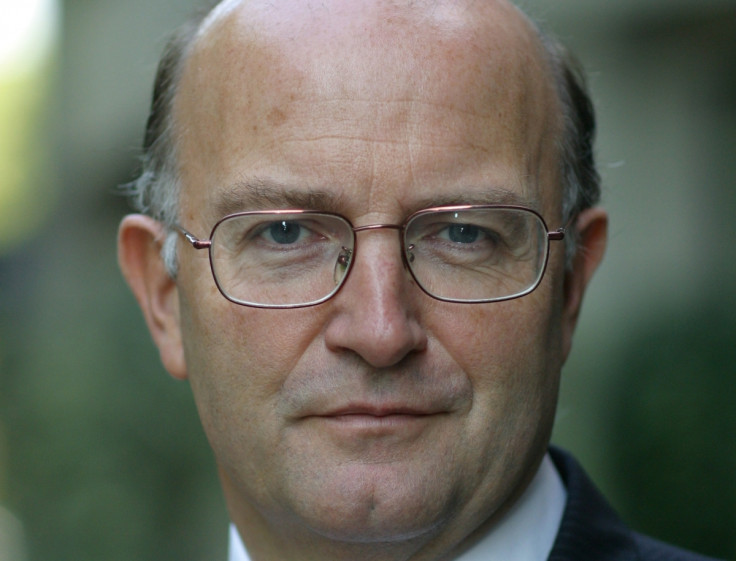Roger Bootle: People Ignoring EU Treaty of Rome Reminiscent of Diplomats Who Ignored Adolf Hitler's Mein Kampf

The European Union is fundamentally a political project and has been since its birth under the Treaty of Rome in 1957, according to the boss of leading research firm Capital Economics.
Roger Bootle, managing director of Capital Economics, said the EU must be clear about what it is in order for member states and their populations to know what they are signed up for.
He cited the opening passage of the Treaty of Rome which binds signatories as "determined to lay the foundations of an ever-closer union among the peoples of Europe".
"People who don't pay attention to the Treaty of Rome remind me of those diplomats in inter-war Britain who didn't read Mein Kampf," said Bootle at a conference put on by the Institute for Economic Affairs (IEA) thinktank.
"Because if you read Mein Kampf you were in no doubt whatsoever that Hitler's Germany was going to attack the Soviet Union.
"If you read the Treaty of Rome, you are in no doubt whatsoever that this is fundamentally a political project and it ends up – if it does end up anywhere – at a destination that precisely was not what the UK, or most of the UK's population, would have wanted."
Bootle said this means when the UK public was sold entry to the "Common Market" in the country's 1975 referendum on the basis of an economic union it was misled, because the EU has always had political ambitions.
He claimed the task now is for the EU to clarify its driving principles, like if it is intent on continuing its expansion by including poorer states on Europe's periphery, or deepening the political union between member states – or even both.
"The result of this process of expansion is I think that the EU essentially suffers from a profound identity crisis – what is it and what is it trying to be?" said Bootle.
"Is it essentially a grouping of countries who happen to be geographically continuous? Is it a grouping of countries that enjoy the same values and principles? Is it meant to be a recreation of Christendom or perhaps the Roman Empire? Is it meant to be just getting ever-bigger?
"What are the limits of this thing? What are the guiding principles?"
Bootle said the litmus test for this is the Turkish question. Turkey is half in Europe and competes as a country in many European tournaments such as football leagues.
Yet there is much debate around whether it should ever be invited to become a part of the EU, because of its sizeable and growing population, poor human rights record, and questionable democratic institutions.
"How does the EU absorb a country like Turkey if the EU is meant to move on to full political union and to preserve the free movement of people?" said Bootle.
"It's very difficult to see, I think, how Turkey can be a member of such a union. But I would flip that over and say what is the nature of the EU that would allow Turkey to be a member?
"Because it seems to me for geopolitical and other reasons that it is essential that Turkey is in rather than out. But turkey cannot reasonably be in and it won't be in the sort of EU we have and we're moving towards."
UK referendum
The UK is facing a referendum on its membership of the EU. Critics say it is a costly bloated bureaucracy that shackles business with too much regulation and erodes national sovereignty.
Proponents say that it brings a significant amount of business into the UK, with many firms using it as a gateway to the European market, as well as gives the country more clout in global trade by its being part of a single trading bloc.
Prime Minister David Cameron backs staying in the EU, despite his promise of a 2017 referendum, but wants to renegotiate the terms of the UK's membership.
"Maybe the best thing to do is to reform it. I think that's probably right. For us to stay members and for it to be reformed, not just in our interests but in the interests of Europe as a whole," said Bootle.
"That should be our first best objective. But if we can't achieve it then I think we'd better get on with the alternative and I for one don't think the alternative is grim."
He added: "My own guess, for what it's worth, is that David Cameron in his attempt to fundamentally renegotiate our relationship and to reform the EU will fail. But I don't think that's bound to happen and I don't think you shouldn't try."
Bootle said a UK outside of the EU would not necessarily be a bad thing because it would be free from the regulatory burden placed on business by Brussels and could negotiate a new free trade agreement with Europe.
© Copyright IBTimes 2025. All rights reserved.






















